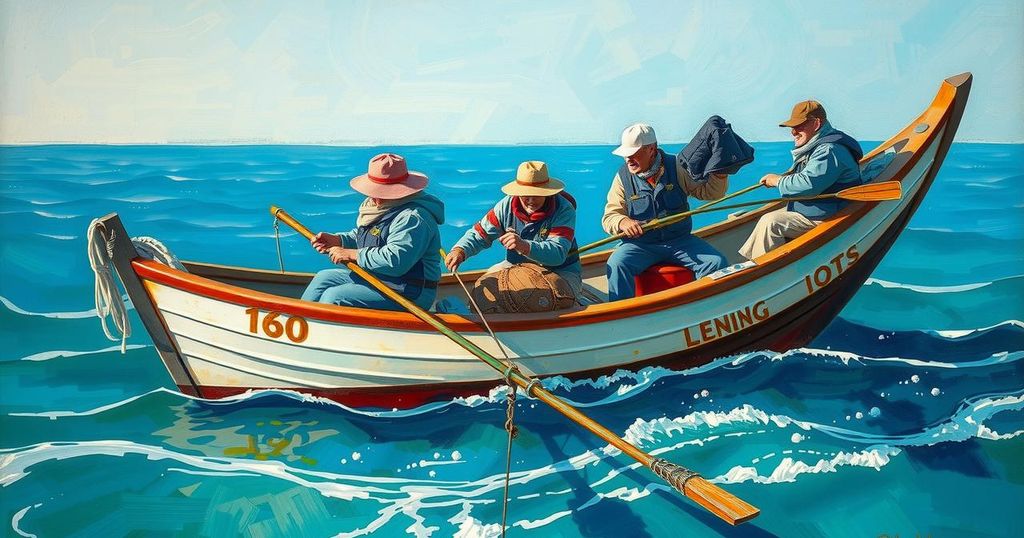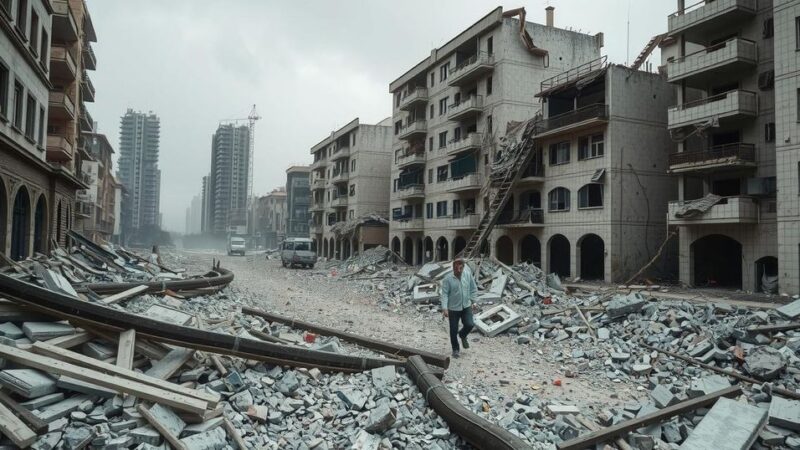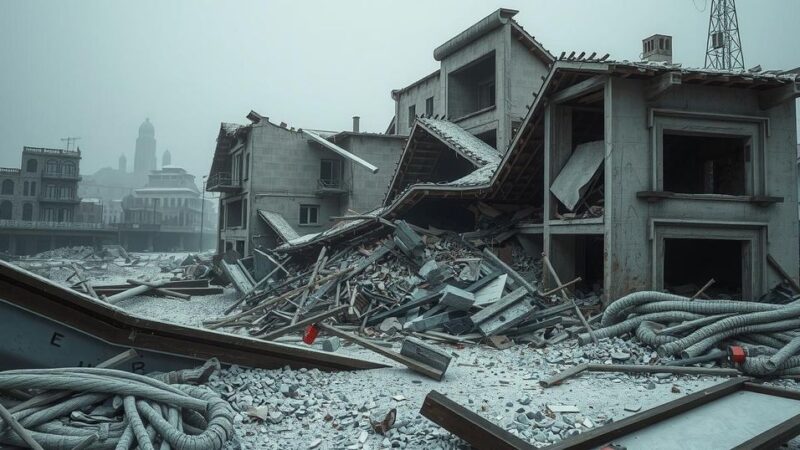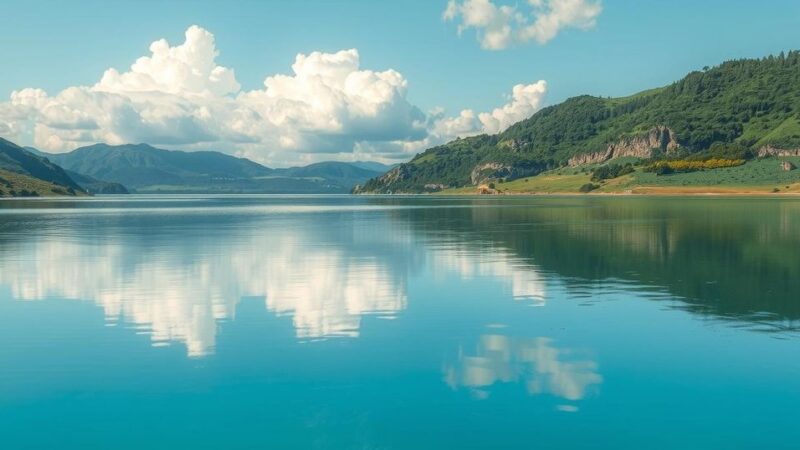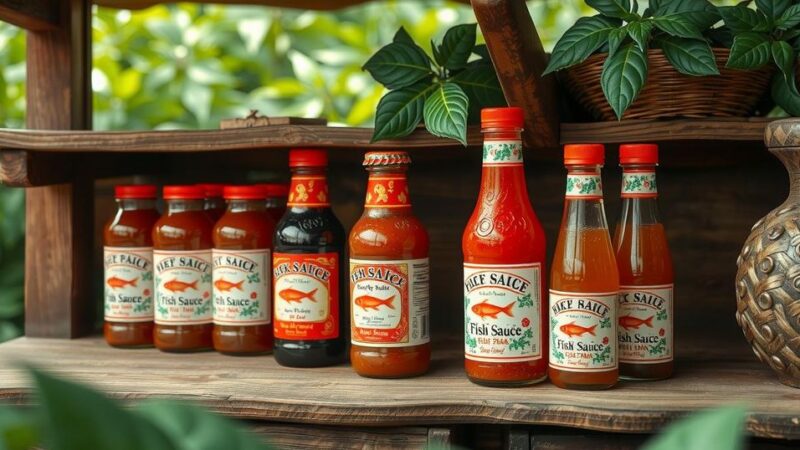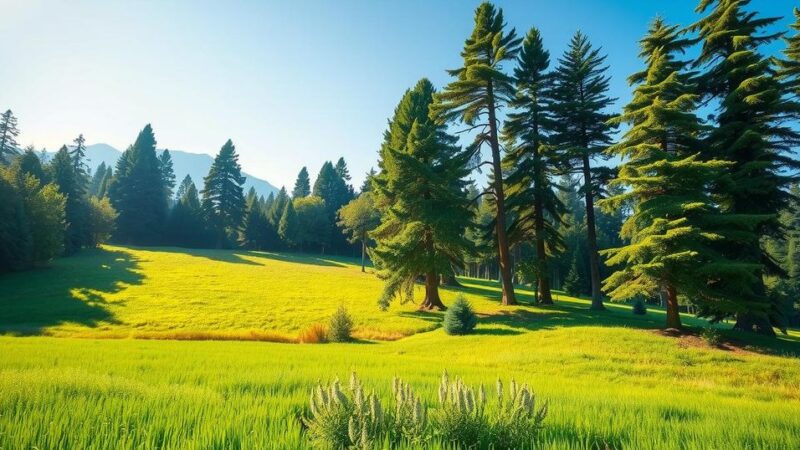In Port Nolloth, South Africa, local fishers, led by Walter Steenkamp, are fighting against offshore oil and gas projects. As environmental concerns grow over insufficient assessments and potential risks to marine life, they have initiated legal actions alongside NGOs to challenge the government’s authorizations. The outcomes of these court cases could significantly influence local sustainable practices and climate policies.
On March 26, 2024, a thick fog enveloped Port Nolloth, South Africa, creating challenging conditions for local fishers. Walter Steenkamp, the chairperson of Aukatowa Fisheries, along with other fishers, anxiously awaited calmer sea conditions after several days of adverse weather, emphasizing their urgent need to return to work amidst declining fishing opportunities due to overharvesting.
Port Nolloth, located in the Northern Cape province, historically thrived on diamond mining and fishing since the 1920s. While diamond mining has diminished, fishing remains vital, although it has contracted significantly since the 1970s due to foreign demand declines and industrial practices. Today, small-scale fishing and diamond recovery persist as primary economic drivers.
Steenkamp has actively campaigned for small-scale fishers to gain recognition and rights to fish, culminating in his success. However, since 2021, he has increasingly focused on environmental concerns regarding planned offshore oil and gas projects. Shell, for instance, announced a seismic survey off South Africa’s eastern coast, initiating a series of exploration activities that have raised alarms among the local fishing community.
Seismic surveys and exploratory drilling are extending into areas near Port Nolloth, raising environmental concerns. Companies like TGS Geophysical Company and Teepsa have received approvals to carry out extensive surveys and drilling operations, prompting fear among local fishers about the potential effects on marine ecosystems and their livelihoods.
Gwede Mantashe, South Africa’s Minister of Mineral and Petroleum Resources, promotes oil and gas development as essential for energy security, particularly in light of recent electricity shortages. Nonetheless, many South Africans, including the Aukatowa Fisheries cooperative and several environmental NGOs, are challenging government authorizations through legal actions based on insufficient environmental impact assessments (EIRs) and cumulative risks.
Legal representatives from Natural Justice assert that EIRs for TGS and Teepsa minimize spill risks, discounting potential catastrophic consequences from oil spills. Expert testimonies have further indicated deficiencies within these assessments, questioning their reliance on models without real-world validation.
Legal advocates argue that cumulative impacts of multiple simultaneous projects have not been adequately considered, heightening the potential threats to marine life. This realization underlines the necessity of addressing collective environmental consequences rather than evaluating each proposal in isolation.
Concerns extend beyond local ecosystems; increasing fossil fuel dependency could accelerate climate change. Experts contend that introducing new fossil fuel projects contradicts South Africa’s climate obligations, undermining efforts to transition towards sustainable energy. The high costs associated with offshore gas projects necessitate increased fossil fuel extraction, conflicting with national energy strategies.
Legal actions from coastal communities, including the Aukatowa fishers, have already begun to influence energy planning and action against harmful projects, potentially delaying previously scheduled developments. Stakeholders assert that proper community engagement during consultation processes was overlooked, leaving fishers no option but to resort to legal avenues for protection.
Steenkamp, alongside his fellow fishers, has witnessed firsthand the detrimental effects of climate change on their fishing practices, resulting in altered catch patterns and diminished fishing days. Local fishers, including Rosie Malan, report adverse environmental shifts affecting marine life, underscoring the urgency to protect the coastal ecosystem for future generations.
The fight against fossil fuel exploitation is essential for the survival of the Port Nolloth community, as South African fishers strive to secure their future while passing down traditional practices to their children. The ongoing court cases represent a pivotal struggle for justice and environmental sustainability in the region, as demonstrated by the challenges posed to TGS and Teepsa’s operations related to responsible environmental stewardship.
While the companies have declined to comment on active litigation, they assert their commitment to sustainable practices in all operations. The outcomes of these legal proceedings could significantly shape the future of energy production and environmental preservation along South Africa’s coastlines.
The legal battles spearheaded by the Aukatowa Fisheries cooperative highlight the urgent need to address the environmental risks posed by fossil fuel exploration off the coast of South Africa. With numerous firms poised to conduct seismic surveys and drilling operations in ecologically sensitive areas, local fishers and environmental NGOs emphasize the inadequacies of current assessments and push for comprehensive reviews of cumulative impacts. This fight underscores the broader implications for climate policy and asserts the necessity of safeguarding marine ecosystems for future generations.
Original Source: dialogue.earth
